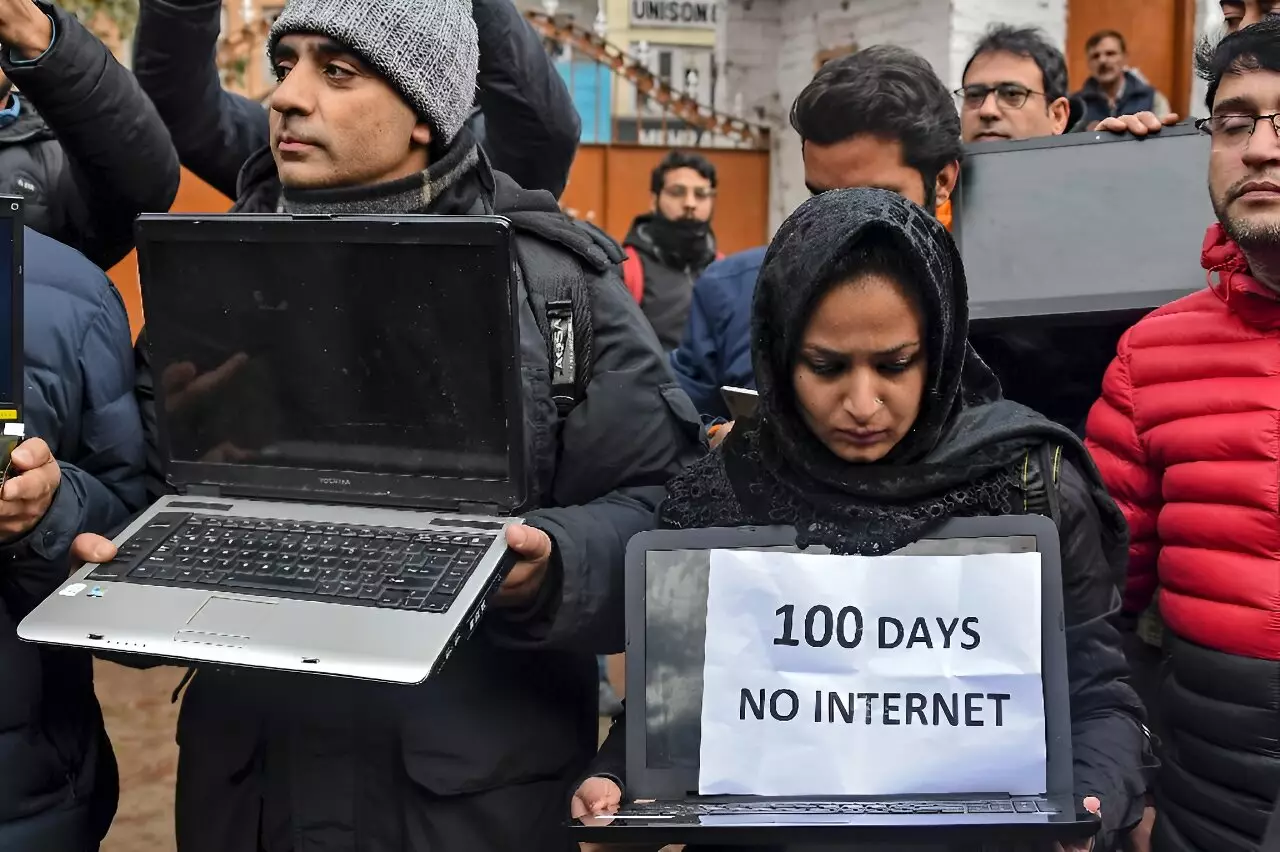India is a country renowned for its advancements in connected technology. With the world’s largest biometric ID database, a pioneering digital payment system, and a flagship space and satellite program, India understands the power and potential of the internet. However, it is also a country that resorts to internet shutdowns as a means to tackle political unrest or sectarian violence. While these shutdowns aim to curb disinformation and restore stability, they have severe consequences for millions of people who rely on the internet for communication, information, and business.
Internet shutdowns have become a common occurrence in India, with authorities frequently employing this measure. According to New York-based online freedom monitors, Access Now, India has the highest number of internet shutdowns worldwide. In 2020, there were 187 reported shutdowns globally, and 84 of them occurred in India. The reasons cited by the Indian government for these shutdowns vary, ranging from protests to the prevention of cheating during exams. However, the consequences of these shutdowns are far-reaching and impact various sectors of society.
The human cost of internet shutdowns in India is significant. Mishi Choudhary, an Indian online civil liberties activist, highlights that these shutdowns allow the government to shape its narrative by silencing dissenting voices. However, the authorities often overlook the detrimental impact on individuals and communities. For instance, in Manipur state, over three million people have been deprived of mobile internet since May, leading to severe disruptions in communication and access to vital information. Tragically, it took Phijam Ibungobi two months to learn about his son’s death due to the lack of internet connectivity.
Human Rights Watch argues that internet shutdowns disproportionately affect the poorest segments of society, who heavily rely on the government’s online social support systems. In a report published in June, HRW stated that nearly 121 million people were affected by these shutdowns in 2020. This is particularly concerning considering that the Indian government has emphasized the importance of digital connectivity in various aspects of life. Instead of utilizing the internet to empower its citizens, authorities use shutdowns as a default policing measure.
The economic implications of internet shutdowns are substantial. In Indian-administered Kashmir, a 500-day blackout in 2019 and 2020 cost the economy over $2.4 billion, severely impacting businesses and livelihoods. From market sellers to larger companies that rely on online platforms for payments, the loss of internet access stifles trade and economic growth. Individuals like Mark Fanai, who had to relocate due to the internet shutdown in Manipur, are struggling to make ends meet. These shutdowns create significant barriers to economic security and development.
Internet shutdowns also hinder journalists’ ability to report on critical events and incidents. During protests in Maharashtra state, the authorities imposed a three-day internet shutdown, making it extremely challenging for journalists like Vinod Jire to gather and report accurate information. The suspension of internet access compromises the duty and responsibility of journalists to provide impartial and timely news. It restricts the flow of information, leading to an environment where rumors and misinformation can thrive.
While the government argues that internet cuts can curb disinformation and prevent the escalation of violence, experts point out their limitations. Tanmay Singh, an internet access advocate, emphasized that disinformation can still spread offline and that fact verification primarily happens on the internet. Moreover, blackouts fail to address the root causes of conflict, and in some cases, they may exacerbate existing tensions. Indigenous tribal leader Ginza Vualzong highlighted that in Manipur, where ethnic groups are divided, internet bans do not solve the underlying issues but instead further isolate communities.
Internet shutdowns in India have severe consequences on individuals, communities, and the overall socio-economic fabric of the country. While authorities may argue for their necessity in curbing disinformation and maintaining stability, the negative effects far outweigh any short-term benefits. It is crucial for the Indian government to recognize the importance of internet access as a fundamental right and explore alternative methods to address political unrest and violence without infringing on the basic rights of its citizens.


Leave a Reply